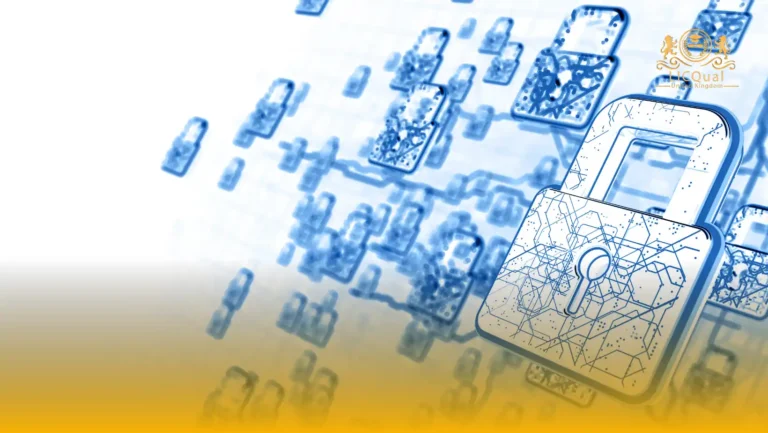The LICQual Level 7 International Diploma in Occupational Health and Safety is a prestigious qualification that is ideal for senior health and safety professionals aiming to further their expertise and enhance their leadership capabilities in global health and safety management. This qualification is designed to equip individuals with the knowledge and skills required to lead health and safety practices in complex and dynamic environments. With a focus on international standards and strategic management, this diploma is perfect for professionals who aspire to operate at the highest level within the field of health and safety.
The LICQual Level 7 International Diploma in Occupational Health and Safety is aimed at professionals already working in senior or leadership roles within health and safety management. This qualification is best suited for those who want to gain a deeper, more strategic understanding of occupational health and safety issues, particularly in an international context.
The LICQual Level 7 International Diploma in Occupational Health and Safety provides an advanced, comprehensive education in health and safety management. The curriculum is designed to develop the strategic leadership capabilities of professionals, enabling them to oversee health and safety systems, manage risk at an organisational level, and ensure compliance with international regulations.
The LICQual Level 7 International Diploma in Occupational Health and Safety is an ideal qualification for senior health and safety professionals seeking to enhance their leadership skills and global expertise. With a comprehensive curriculum focusing on international health and safety legislation, strategic risk management, and the development of safety systems, this diploma provides the advanced knowledge and skills needed to lead health and safety efforts at the highest level. Whether you are aiming for a leadership position within your organisation or seeking to work as a consultant in a global context, this qualification offers the credibility and expertise to help you succeed in the complex world of occupational health and safety management.
Course Overview
Qualification Title
LICQual Level 7 International Diploma in Occupational Health and Safety
Total Units
6
Total Credits
120
GLH
600
Qualification #
LICQ2200039
Qualification Specification
To enrol in the Level 7 Diploma in Occupational Health and Safety Practice, learners typically need:
- A relevant qualification at Level 6 or equivalent in occupational health and safety or a related field.
- Significant experience working in a health and safety role, preferably at a senior or strategic level.
- A strong understanding of health and safety regulations and risk management practices.
- Experience in managing and leading health and safety initiatives within an organisation.
- Competence in written and verbal communication, with the ability to present ideas clearly and effectively.
- A minimum of two years’ experience in a health and safety role is recommended, although candidates with extensive managerial experience may also be considered.
|
Qualification# |
Unit Title |
Credits |
GLH |
|---|---|---|---|
|
LICQ2200039-1 |
International Health and Safety Legislation |
20 |
100 |
|
LICQ2200039-2 |
Strategic Risk Management |
20 |
100 |
|
LICQ2200039-3 |
Health and Safety Leadership and Culture |
20 |
100 |
|
LICQ2200039-4 |
Health and Safety Management Systems |
20 |
100 |
|
LICQ2200039-5 LICQ2200039-6 |
Incident Investigation and Reporting Emergency Preparedness and Crisis Management |
20 20 |
100 100 |
By the end of this course, learners will be able to:
- International Health and Safety Legislation
- Demonstrate a comprehensive understanding of international health and safety legislation, including global standards and regulations.
- Apply international health and safety laws within diverse organisational settings, ensuring compliance with local and global requirements.
- Assess the implications of international legal frameworks on organisational health and safety practices and strategies.
- Strategic Risk Management
- Develop advanced strategies for identifying, assessing, and managing risks at a strategic level within organisations.
- Apply risk management frameworks to address both existing and emerging risks, ensuring long-term safety and compliance.
- Lead the creation of risk management policies that align with organisational goals and global health and safety standards.
- Health and Safety Leadership and Culture
- Demonstrate the ability to lead health and safety initiatives at a strategic level, influencing safety culture within the organisation.
- Develop and implement strategies to foster a positive safety culture and engage employees in health and safety practices.
- Assess and improve leadership strategies to ensure effective management of health and safety across all organisational levels.
- Health and Safety Management Systems
- Design, implement, and evaluate comprehensive health and safety management systems aligned with international best practices.
- Establish policies, procedures, and protocols to support effective health and safety management.
- Continuously assess and improve the management systems to enhance organisational safety performance and compliance.
- Incident Investigation and Reporting
- Investigate workplace incidents, accidents, and near misses to determine root causes and contributing factors.
- Develop and implement corrective actions to prevent recurrence of incidents and improve safety protocols.
- Prepare detailed investigation reports and communicate findings to stakeholders, ensuring that lessons are learned and safety practices are enhanced.
- Emergency Preparedness and Crisis Management
- Develop and implement comprehensive emergency preparedness plans tailored to the specific needs of the organisation.
- Lead crisis management efforts, ensuring a swift and effective response to potential emergencies.
- Evaluate and continuously improve emergency response strategies to ensure that the organisation can effectively manage crises and minimise their impact.
This diploma is ideal for:
- Senior Health and Safety Managers
Professionals currently holding senior positions in health and safety management who are seeking to enhance their strategic leadership and decision-making abilities in complex organisational settings. - Health and Safety Directors
Individuals in director-level roles or those aspiring to move into such positions, who need to develop advanced expertise in international health and safety regulations, risk management, and organisational leadership. - Health and Safety Consultants
Consultants working at a senior level or in international markets who want to deepen their knowledge of global health and safety standards, risk management strategies, and emergency preparedness in diverse contexts. - Occupational Health and Safety Advisors
Experienced advisors looking to broaden their knowledge and gain the skills necessary to influence health and safety policies at an international level and drive improvements within organisations. - Aspiring Leaders in Health and Safety
Professionals with significant experience in health and safety, aiming to advance to leadership positions and manage health and safety practices at a global scale, across multiple jurisdictions and industries. - Professionals Working in Multinational Organisations
Individuals employed in organisations with global operations who need to understand the complexities of implementing consistent health and safety practices across different countries and regulatory environments.
Assessment and Verification
All units within this qualification are subject to internal assessment by the approved centre and external verification by LICQual. The qualification follows a criterion-referenced assessment approach, ensuring that learners meet all specified learning outcomes.
To achieve a ‘Pass’ in any unit, learners must provide valid, sufficient, and authentic evidence demonstrating their attainment of all learning outcomes and compliance with the prescribed assessment criteria. The Assessor is responsible for evaluating the evidence and determining whether the learner has successfully met the required standards.
Assessors must maintain a clear and comprehensive audit trail, documenting the basis for their assessment decisions to ensure transparency, consistency, and compliance with quality assurance requirements.







